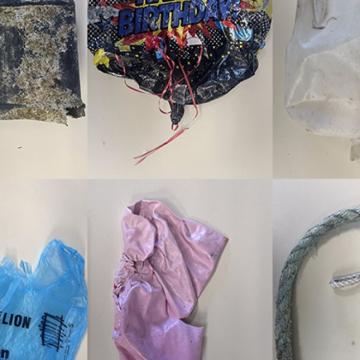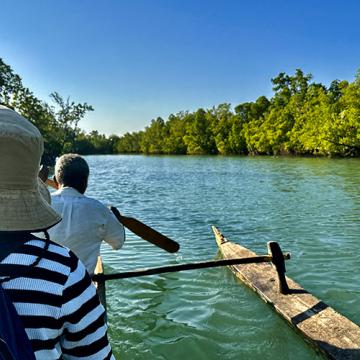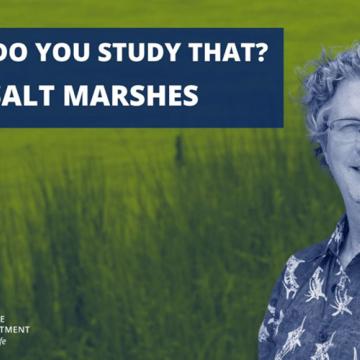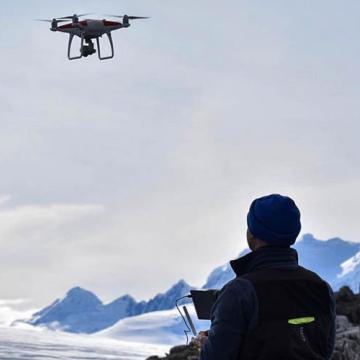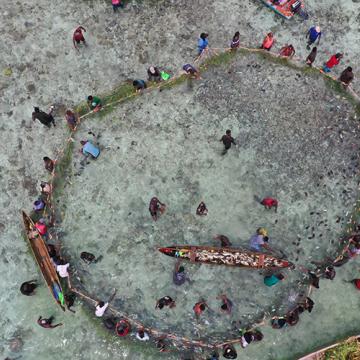-
NewsCrab behavior suggestive of wound-tending may improve coral tolerance to heat waves.
-
NewsA trove of lithium-rich brine exists underground in Bolivia. Researchers conducted the first comprehensive chemical analysis of wastewater associated with mining the resource.
-
NewsSatellite records show spectacular vegetation growth coinciding with the first year of the pandemic. Researchers investigated whether lockdowns played a role.
-
NewsMeet the PlanetLab, learn more about its research focus, lab members' experiences in the lab and the opportunities the lab offers Duke students.
-
NewsDuke study reveals low levels of common contaminants but high levels of other elements in waters associated with an abandoned lithium mine.
-
NewsJournals focused on ferns, clams, or coral reefs had proportionally more of their articles cited by the federal government when protecting species than more prominent, higher-impact journals
-
NewsAnimals that hunt in the dark with sonar may not be able to tell junk from squids
-
NewsMeet the Ocean Synthesis Lab, learn more about its research focus, lab members' experiences in the lab and the opportunities the lab offers Duke students.
-
NewsBrian Silliman, Rachel Carson Professor of Marine Conservation Biology at Duke, explains why he studies salt marshes in coastal North Carolina: They increase production of seafood, help protect against storms, and clean the air. With climate change causing stress to these organisms, coastal communities are more vulnerable. ”Duke is very active in the conservation and restoration of salt marshes,” says Silliman.
-
NewsA new study co-authored by Binbin Li and Stuart Pimm outlines what is needed for conservation to benefit both nature and people.
-
NewsScientists have created a research framework to incorporate ecological theory – mathematical models and concepts to understand interactions and dynamics of ecosystems – into ecosystem management and planning to more effectively scale restoration and counter rising carbon dioxide emissions globally.
-
NewsAn international team of scientists has revealed high levels of toxic metals in global phosphate fertilizers using a variant of the element strontium to uncover such metals in soil, groundwater and possibly the food chain.
-
NewsMeet the Marine Robotics and Remote Sensing Laboratory, learn more about its research focus, lab members' experiences in the lab and the opportunities the lab offers Duke students.
-
NewsMeet the Patino-Echeverri Lab, learn more about its research focus, lab member's experiences in the lab and the opportunities the lab offers Duke students.
-
NewsMarine Protected Areas must be flexible and responsive, not absolute






